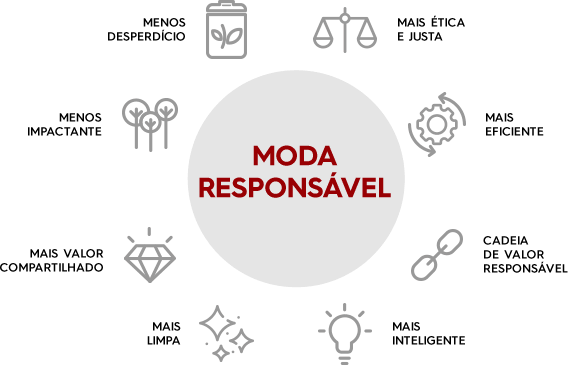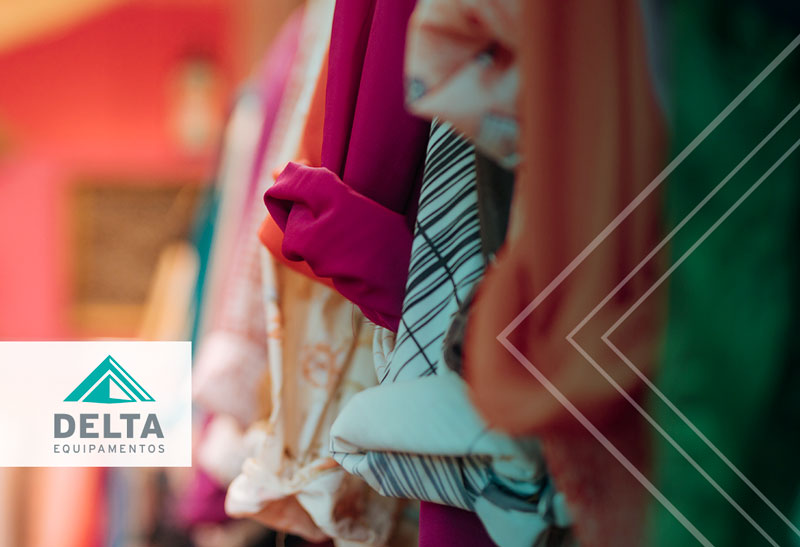There is a lot of talk about sustainable consumption and good practices for the environment. However, do you know what this is about? Although the fashion industry has always been associated with negative impacts on the environment, many large corporations are adapting to this new consumer demand.
To avoid losing space in the market, understand what sustainable consumption is, where this new model of thinking came from and what the impacts are on the productive sectors.
Understand what sustainable consumption is and how it arises
Sustainable consumption is when we adopt the practice of purchasing (food, clothing, accessories, household appliances and any type of product) that have no impact or minimal interference with the environment. In other words, it is the act of using, purchasing and consuming items that do not pollute or harm our non-renewable resources.
Attitudes towards consuming sustainably arise as the population matures about the level of degradation we are causing to our Planet, especially those that are irreversible.
Through this new way of thinking and consuming, customers are able to modify the production model of large industries, after all, they need to meet this sustainable demand to remain in the market and remain competitive.
Only 9% of respondents are not concerned about sustainable consumption
In this sense, to give you an idea, a survey carried out found that only 9% of respondents do not care about sustainable consumption, with 55% giving preference to brands that care about the environment.
Segments influenced by sustainable consumption
In addition to the fashion industry, which has already been adapting its production and waste disposal processes, especially with the rise of upcycling and the circular economy, other sectors of the economy are being impacted by this new market demand.
Cosmetics
In line with sustainable consumption trends, the beauty industry is already turning its attention to strategies that reduce the large use of plastic packaging (which is normally discarded inappropriately) and the use of clean and renewable energy.
Large industries are training their employees and the local population on a sustainable approach and reinforce that they are looking for suppliers of raw materials without polluting materials, such as chemical substances, parabens, toluenes and salts, which can also cause allergies.
Food
Conscious practices that adapt to sustainable consumption in the food industry include composting waste, saving and reusing water, using biodegradable packaging and, above all, eliminating pesticides.
The behavior of major department stores towards sustainable consumption
Sustainable consumption creates the need for large industries and brands to rethink the concept of mass production. In this context, demand becomes more important for survival and profitability in the market.
Therefore, reference companies in the fashion industry have been adapting their processes and attitudes in relation to the environment, pollution and degradation of the planet. The Kering group, like Gucci, has adopted strategies that completely neutralize carbon emissions throughout its supply chain.

Prada is also betting on this maturing consumption and has been investing in sustainability conferences in New York, which is considered the birthplace of fashion, with the aim of evaluating ethical choices in consumer behavior.
In Brazil, Renner and Natura signed a letter from the Brazilian Business Council for Sustainable Development (CEBDS) committing to reduce greenhouse gas emissions.
+Have you read these?
- Sustainability in manufacturing: an issue to be analyzed
- Fashion industry and sustainable production
- Waste in clothing: 4 ways to combat this problem
The future of sustainable consumption in fashion
The trend towards sustainable consumption in fashion is for the concepts of circular economy and upcycling to become even stronger. The concern about purchasing parts that would be discarded in the environment or that come from reuse are already a reality, including in the national territory.
To achieve this, companies have adopted an approach that is concerned with the origin and impact of each raw material, from dyeing to the final disposal of products. The idea is to reduce the exaggerated consumption proposed by fast fashion and adapt to the new model of thinking and habits by valuing the pieces.
The concept of sustainable consumption is opposed to immediacy and linear economy, which promote consumer satisfaction quickly, but with irreversible consequences for the environment. In this sense, it is essential to update the technology of your industry, so that it can meet the competitiveness and new consumption model of the population.
Take the opportunity to check out what upcycling is and its impacts on the future of production in the fashion industry.


![E-book]How to ensure quality control in the textile industry?](https://deltamaquinastexteis.com.br/wp-content/uploads/2019/04/ebook-como-garantir-o-controle-de-qualidade-na-industria-textil-1.jpg)

